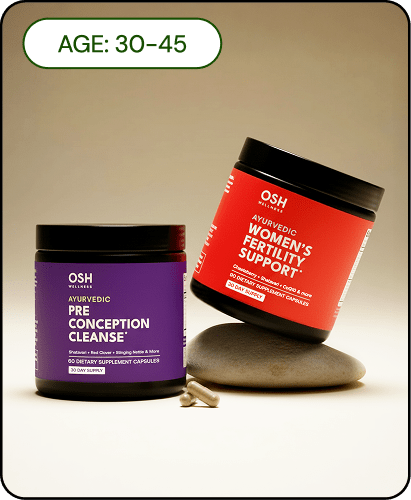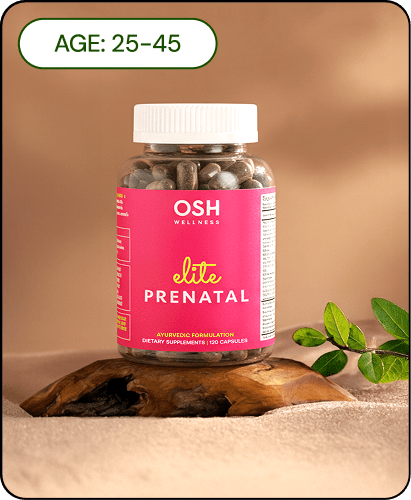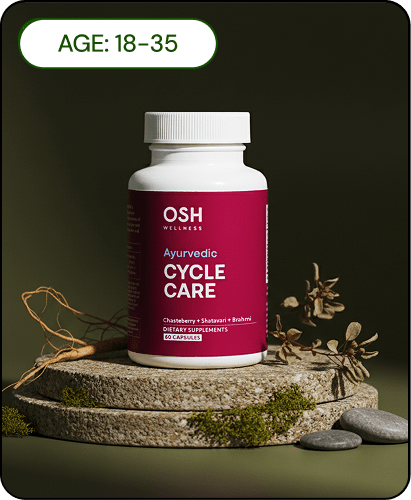Table of contents
Rhodiola rosea, known as Rhodiola, is an adaptogenic herb gaining recognition for its ability to help manage stress, particularly in relation to hormonal imbalances. Women aged 40 to 55 frequently experience hormonal fluctuations caused by external stressors, often resulting in a cycle of dysregulated cortisol and adrenal fatigue. Recent studies show Rhodiola’s potential to support adrenal health and balance key stress hormones such as cortisol and adrenaline. This article explores the science behind Rhodiola’s adaptogenic properties and its practical uses in hormone-related stress management.
Introduction to Rhodiola and Its Benefits

Rhodiola rosea is derived from cold, mountainous regions like Siberia, and has long been used in traditional medicine to increase resilience to physical and emotional stress. In contemporary wellness, it's particularly valued by women navigating career shifts, parenting, and perimenopause. These transitions often prompt hormonal fluctuations that can heighten stress and compromise well-being [1].
Rhodiola supports the adrenal system, regulating cortisol, a key hormone responsible for the body’s stress response. Chronic stress can disrupt cortisol balance, in turn affecting hormones like estrogen and progesterone, which are crucial to women’s health [2]. By aiding adrenal function, Rhodiola helps stabilize hormonal activity naturally.
Modern studies affirm Rhodiola's efficacy in reducing fatigue, anxiety, and depression. One clinical trial found that 400 mg daily significantly improved stress, burnout, and mood by influencing neurotransmitters such as serotonin and dopamine [3]. Additional benefits include enhanced mood and cognitive clarity, key for managing hormonal shifts [4].
As a natural adaptogen, Rhodiola offers a holistic path toward stress resilience and hormonal balance, increasingly supported by emerging research and anecdotal evidence.
Understanding Hormonal Stress

Hormonal stress occurs when external stressors disrupt the delicate equilibrium of stress and reproductive hormones. In women, this stress primarily involves elevated cortisol, which can interfere with the hypothalamus-pituitary-ovarian (HPO) axis . This axis regulates menstruation and ovulation, both highly sensitive to prolonged stress [5] .
Disruption in this system may lead to irregular cycles, missed periods, and more intense premenstrual symptoms. Heightened cortisol also contributes to imbalances in estrogen and progesterone, escalating symptoms such as insomnia, anxiety, and mood instability [6].
Common contributors to hormonal stress include:
Chronic lack of sleep
Poor nutritional habits
Excessive exercise or sedentary lifestyle
High-pressure careers or personal responsibilities
Symptoms often include night sweats, fatigue, irrational mood swings, and depression, all of which can be traced to hormone irregularities driven by persistent stress [7].
The Role of Rhodiola Rosea as an Adaptogen

Rhodiola rosea is classified as an adaptogen - meaning it helps normalize bodily functions and increase resilience against physical, emotional, and chemical stress. Its active components, particularly rosavin and salidroside, are believed to play a central role in reducing stress and improving alertness.
Historically, it has been used in Russian, Mongolian, and Scandinavian medicine systems to treat fatigue, enhance performance, and extend longevity. Modern science supports these traditional claims. One study of 118 participants found that Rhodiola (400 mg daily for 12 weeks) significantly reduced symptoms of burnout and emotional exhaustion.
Additional research shows it can:
Boost physical endurance*
Support mood and reduce anxiety*
Improve mental performance under pressure* [8]
Though research is promising, more long-term human studies are necessary to establish standard dosing and comprehensive safety data across broader demographics.
Benefits of Rhodiola for Hormonal Balance

One of Rhodiola's strongest attributes is its prowess in lowering elevated cortisol, the body’s primary stress hormone. Excess cortisol can lead to weight gain, menstrual irregularity, and weakened immune response. Rhodiola assists in stabilizing cortisol levels in stressed individuals [1].
Additional hormonal benefits include:
Acting as a selective estrogen receptor modulator (SERM), allowing flexible estrogen regulation
Alleviating perimenopausal symptoms like hot flashes and mood swings [2]
Reducing adrenal fatigue symptoms and improving mood by influencing serotonin and dopamine [3]
This allows Rhodiola to address several symptoms all at once, from anxiety to poor focus and irritability, making it a comprehensive tool for hormonal balance [4].
Incorporating Rhodiola into Your Lifestyle

Women can incorporate Rhodiola into their routines through various supplement forms such as capsules, powders, and extracts, all of which offer convenience and versatility. Capsules are often favored for their simplicity, while powders can be mixed into morning smoothies [4].
Typical daily doses range from 200 to 600 mg, generally split into two amounts taken morning and midday to avoid potential sleep disturbances. Always begin with the lowest effective dose and monitor response [9].
Additional lifestyle considerations include pairing Rhodiola with:
Mindful practices like meditation or yoga
Balanced nutrition and hydration
Regular, moderate-intensity exercise
While research largely supports Rhodiola’s efficacy, more women-specific studies are needed. However, anecdotal results suggest many women report increased energy and emotional stability. Women who are pregnant, nursing, or managing complex health conditions should consult a healthcare provider before use [10].
Just like many Ayurvedic herbs, benefits of Rhodiola can be enhanced when used in combination with other herbs and nutrients that complement it. Osh Hormone & Mood Support is a blend of 7 organic botanicals, including Rhodiola, that work in harmony to restore hormonal balance, reduce stress and anxiety, and regulate cortisol.*
Expert Insights and Future Implications

Experts acknowledge that Rhodiola effectively modulates the HPA axis, helping regulate cortisol and broadly supporting adrenal health. This offers relief not only from fatigue but from stress-driven disruptions to menstrual and reproductive systems [1].
Advantages of Rhodiola include:
Quick onset of results, with improved mood and energy often within a week* [2]
Fewer side effects compared to pharmaceutical stress treatments*
Adaptogenic synergies with lifestyle interventions and other herbs*
Yet, it is not a panacea. Limitations include small-scale trials and unclear long-term impacts. Higher doses do not guarantee better results and may cause adverse reactions like dizziness, irritability, or insomnia [11].
Future research should prioritize:
Large-scale, randomized clinical trials
Comparative studies with other adaptogens
Bioactive compound analysis for hormonal mechanisms [4]
Conclusions

Rhodiola rosea stands out as a natural ally for women managing hormonal stress. It regulates cortisol, supports adrenal function, and improves mental resilience. Convenient integration into daily life makes it a viable part of a holistic health strategy. As research evolves, Rhodiola’s importance in combating stress and promoting hormonal balance will likely continue to grow.
Sources
1: Healthline - Rhodiola Rosea: Benefits and Side Effects
2: Dr. Jolene Brighten - 14 Rhodiola Benefits
3: Medical News Today - What Is Rhodiola Rosea?
4: WebMD - Health Benefits of Rhodiola
5: Orlando Health - Can Stress Upset My Hormones?
6: Rockville OBGYN - The Connection Between Stress and Your Hormones
7: Healthline - Hormone Imbalances and How to Treat Them
8: PubMed - Rhodiola Rosea: Effects on Stress and Performance
9: Drugs.com - Rhodiola Rosea Overview
10: Integrative Pro - Dosing Rhodiola
11: Memorial Sloan Kettering - Rhodiola







